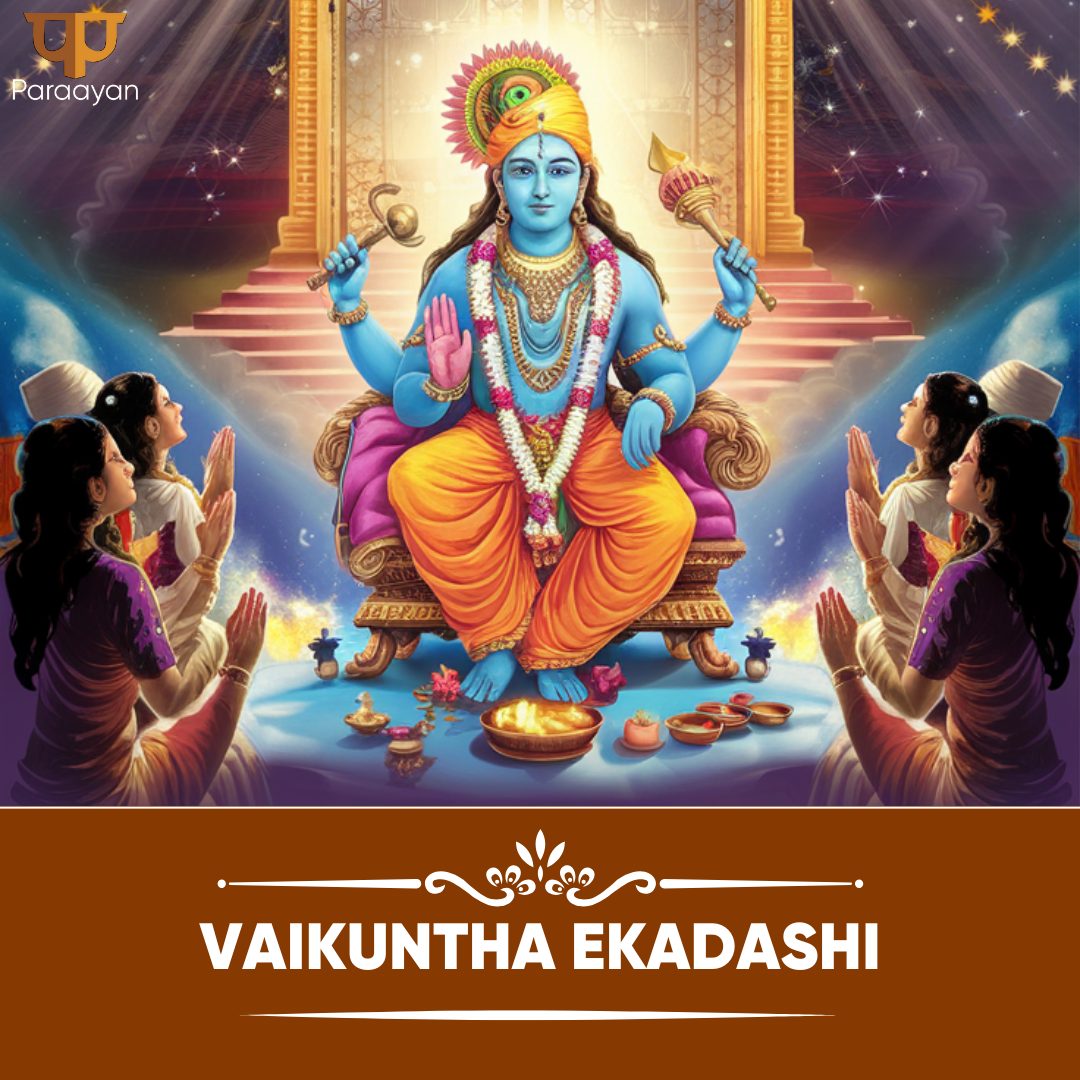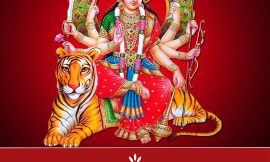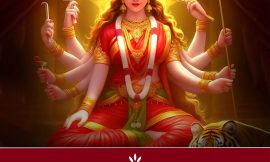Vaikuntha Ekadashi marks a unique convergence of spiritual practices and celestial alignments, offering devotees the opportunity to attain salvation and divine blessings through fasting and rituals.
Vaikuntha Ekadashi is a significant Hindu festival observed during the Dhanur solar month of the Hindu calendar. Known as Margazhi month in the Tamil calendar, it marks Shukla Paksha Ekadashi, one of the two Ekadashis in a lunar month, the other being Krishna Paksha Ekadashi. Due to its unusual timing, Vaikuntha Ekadashi occasionally falls in either the Pausha or Margashirsha month of the Hindu lunar calendar because it is based on the solar calendar.
Spiritual Significance and Benefits

Mukkoti Ekadashi, another name for Vaikuntha Ekadashi, is a very significant spiritual holiday. This holy day is considered by Hindus to be the opening of the Vaikuntha Dwaram, the celestial gate leading to Lord Vishnu’s inner sanctum. Devotees who observe a fast and worship with complete devotion are said to have entrance to Vaikuntha, Bhagwan Vishnu’s celestial home. The day offers a unique chance for spiritual growth and represents freedom from the cycle of birth and death. For the followers of the Sri Ranganathaswamy Temple in Srirangam and the Tirumala Venkateswara Temple in Tirupati, this Ekadashi is very important. These temples attract hundreds of devotees who come to seek Lord Vishnu’s blessings via intricate rites and festivities.
In Kerala, Vaikuntha Ekadashi is known as Swarga Vathil Ekadashi. In the Malayalam-speaking area, devotees enthusiastically commemorate it, seeing it as an opportune time for heavenly favours and spiritual development.
Rules for Parana and Fasting Guidelines
Fasting is one of the primary elements of Vaikuntha Ekadashi festivities. It must be adhered to rigorously by the regulations. Another important rite is the breaking of the fast, called Parana. On the Dwadashi Tithi, the day after Ekadashi, parana is done after daybreak. It is essential to complete the Parana within the Dwadashi Tithi to avoid incurring an offence.
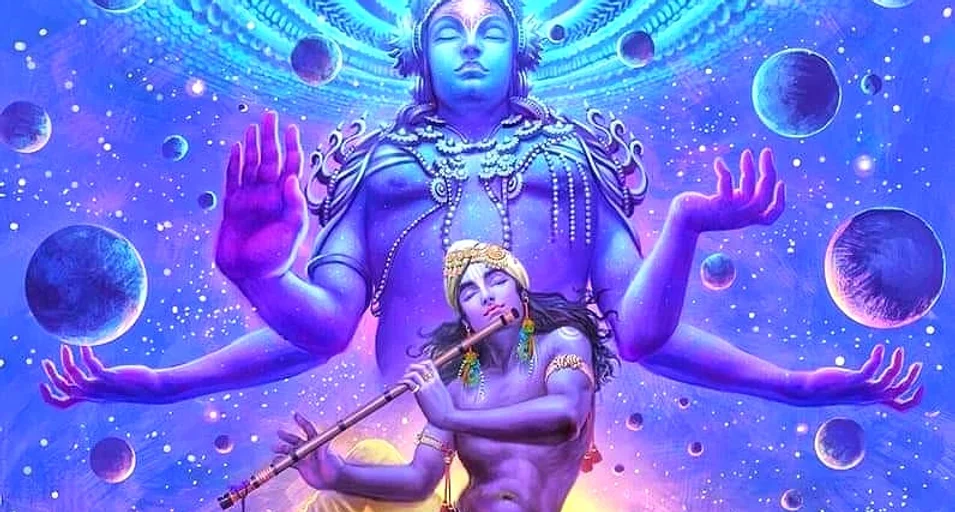
Parana must not be performed during the Hari Vasara period, which constitutes the first quarter of the Dwadashi Tithi. Devotees are advised to wait until the Hari Vasara period ends. Breaking the fast during Pratahkal (early morning) is the most advised period. If circumstances do not allow for breaking the fast at Pratahkal. It should be done after Madhyahna (midday), rather than during the Madhyahna hour.
Keeping a Fast for Several Days in a Row
Ekadashi fasting for two days in a row is sometimes advised. In such cases, it is recommended that Smarthas, especially those with families, observe the fast on the first day. The second day of fasting is generally suggested for Sanyasis (renunciates), widows, and those seeking Moksha (liberation). For Smarthas, the alternate Ekadashi fasting day often coincides with Vaishnava Ekadashi. Fresh flowers, lamps, and incense are offered during the worship.
Key Rituals and Practices
The spiritual value of Vaikuntha Ekadashi is enhanced by a number of rituals:
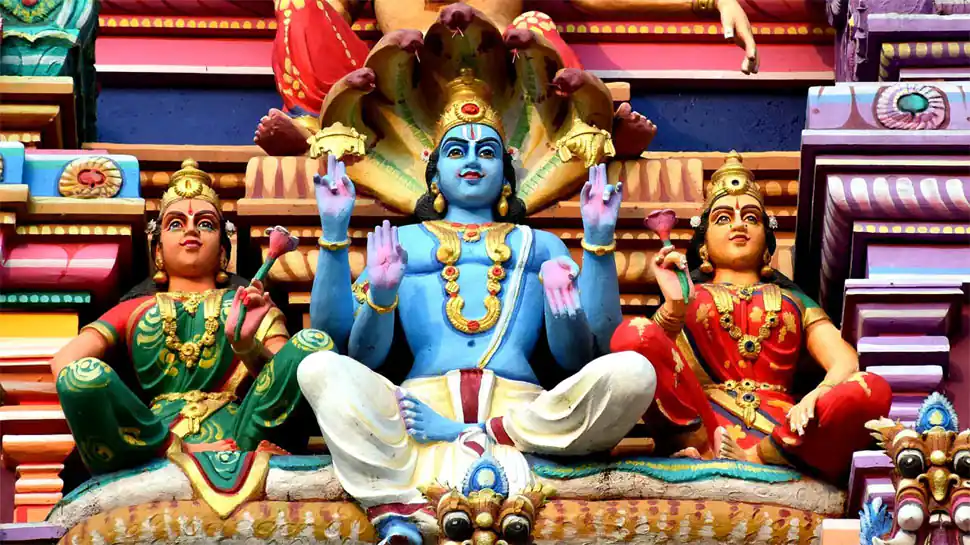
- Worship and Preparation: To be ready for the day, devotees tidy their houses and erect a hallowed shrine including an idol or picture of Bhagwan Vishnu Fresh flowers, lights, and incense are offered during the service.
- Fasting: One of the main practices is keeping a full fast. Some followers may just eat fruits and milk, while others may completely forgo food and liquids.
- Chanting and Prayers: Vishnu Sahasranama, which is a list of the thousand names of Lord Vishnu sung together with devotional songs. Chanting Vishnu mantras and singing bhajans enhance the spiritual experience.
- Temple Visits: It is seen to be very lucky to visit temples devoted to Lord Vishnu, particularly the well-known ones in Tirupati and Srirangam.
- Charity: Showing compassion by giving food and charity to those in need is recommended.
Conclusion
Vaikuntha Ekadashi is a reminder of the eternal relationship among Bhagwan Vishnu’s followers because of its deeply spiritual significance. The festival’s unique traditions, fasting guidelines, and noteworthy benefits emphasise the necessity of self-control and commitment as a path to redemption. Its observance is a demonstration of unwavering faith and spiritual aspirations, making it an important event in the Hindu calendar.


